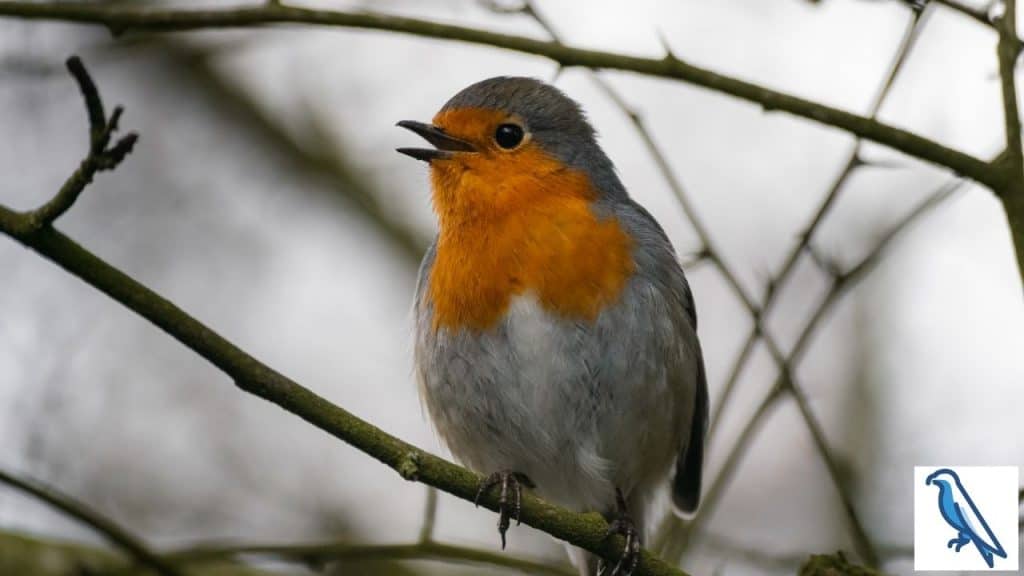
Bird signals are distinct, complicated, and used to communicate with one another. These signals can be classified as “chirping” & “singing.”
Moreover, the frequency of these activities depends on the type of bird. Diurnal birds are more active during the day, and nocturnal will be active at night.
However, diurnal birds can still chirp at night to communicate or alert others. So, do finches chirp at night to communicate with their mates?
In the wild, finches may chirp at night to alert their group if they see any potential intruder or danger. In captivity, they will not be active, as they are confined to the safety of their finch cage. They will rather prefer to sleep at night and will remain active and chirpy during the day.
Alright! Now that you know, finches may chirp at night if they see any danger and want to alert other finches.
But in general, they are not active at night and prefer to remain quiet. Let us also try to understand why finches prefer to be silent at night?

Why Do Finches Not Chirp At Night?
Like most birds, finches are diurnal, which means they are active in chirping, chattering, and communicating with their mates during the day.
They forage the forest floor, nurture their young chicks, and do other activities during the daytime.
Like most diurnal birds, finches retreat to the safety of their cavities or niches to sleep at sunset.
These nest cavities, snags, and tree canopies protect them from predators and provide shelter from bad weather.
Making unnecessary noise or sounds at night will attract the nocturnal predator’s attention, like owls and night hawks who may be on the hunt.
Therefore, it is natural for diurnal birds like finches to remain quiet through the night to evade these predators.
Wow! That is not difficult to understand that finches, by remaining inactive, can easily avoid predators during the night.
Let us also check out other reasons or occasions when you may find finches chirping or singing at night.
Reasons Why Finches May Chirp At Night?
As we have already covered in the earlier section, diurnal birds, like finches, are active through the day and retreat to safety at night.
Even if that holds true, there are times when diurnal birds, like finches, may chirp at night for various reasons.
Let us explore further to understand the reasons why finches may chirp/sing at night.
- Warning Sign: In the wild, finches take shelter at night to avoid predators as well as bad weather. However, if they perceive any danger from an intruder, they may give warning signs to alert the group.
- Communication: Another reason the finch may chirp at night is to communicate with other finches in the group. Although, the frequency will be low as compared to the chirping that happens throughout the day.
- Attract Female: Male finches may sing at night. This is primarily done when the young males are looking for a companion. They resort to singing to attract females towards them.
- Disturbance: In captivity, finches may chirp or make noise if the room where the finch cage is kept has a light, and it disturbs or deters the pet bird from sleeping. Such unnecessary stress can also lead to the poor health of your pet finches.
- Disorientation: This is another reason why we often hear birds chirping at night. Due to rapid urbanization, we are moving closer to their natural habitat. Most of the time, it confuses wild finches, as they may perceive light as daytime.
Okay! Now you know the reasons why finches may chirp or sing at night. Let us also find out which other bird type may chirp or sing in the middle of the night.
Recommended Further Reading:
- Why Do Finches Puff Up? (What Are The Possible Reasons)
- How Long Do Finches Live? + How Long Do Zebra Finches Live?
- What Do Finches Eat? + Do Finches Eat Fruits & Veggies?
- Do Finches Feed Their Babies? (How Long Can Babies Live Without Food?)
Which Birds Chirp In The Middle Of The Night?
Most birds chirp during the day and sleep at night. Still, there are birds active and chirp/sing in the middle of the night.
There may be different reasons like communicating, giving out warning signals, or even wooing female birds.
Let us have a look at birds that chirp in the middle of the night.
Nightingale: The common nightingale, rufous nightingale or simply nightingale, is a small passerine bird known for its beautiful singing ability. Male nightingale is known for its loud and beautiful melodies and can sing long into the night.
Northern Mockingbird: The northern mockingbirds are a cluster of new world passerine birds. They are particularly known for their habit of mimicking the songs of other birds and the sounds of some insects and amphibians continuously throughout the day and night.
Eastern Whip-Poor-Will: It is a medium-sized nightjar found in North America. It is known to camouflage itself in its immediate surrounding. The whip-poor-will is found most active around sunrise and sunset.
Owl: An owl is a nocturnal predatory bird that hunts other birds, insects, rodents, and small mammals at night. You may often hear owls chirp, bark, growl, squeal, screech, and whistle at night. They prefer to sleep during the day and remain active at night.
Similarly, American Robin, Black-Crowned Night-Heron, Black Rail, European Robin, Hermit Thrush, Killdeer, and Yellow-Breasted Chat are birds that chirp and sing in the middle of the night.
Related Further Reading:
- Do Finches Need To Be Covered At Night (Reasons For Not Covering)
- Are Finches Affectionate? + Do They Like To Be Handled By Humans?
- Do Zebra Finches Mate For Life? + What If It Loses Its Mate?
Points To Remember
Finches are diurnal birds sociable in nature, like to chirp and chatter during the day and sleep at night.
In the wild, finches take refuge in the dark. But remain cautious and alert their mates in case of any danger or predator intruding in their territory.
Male finch can sing, and those looking for companions chirp and sing at night to attract female finch.
In captivity, pet breeders should provide them proper conditions at night. This will help them in getting proper rest and remain active and healthy.

Hi, There and Welcome to BirdsNews.com, is here to help you learn and care about pet birds. and this blog is a journal of everything I’ve learned.
